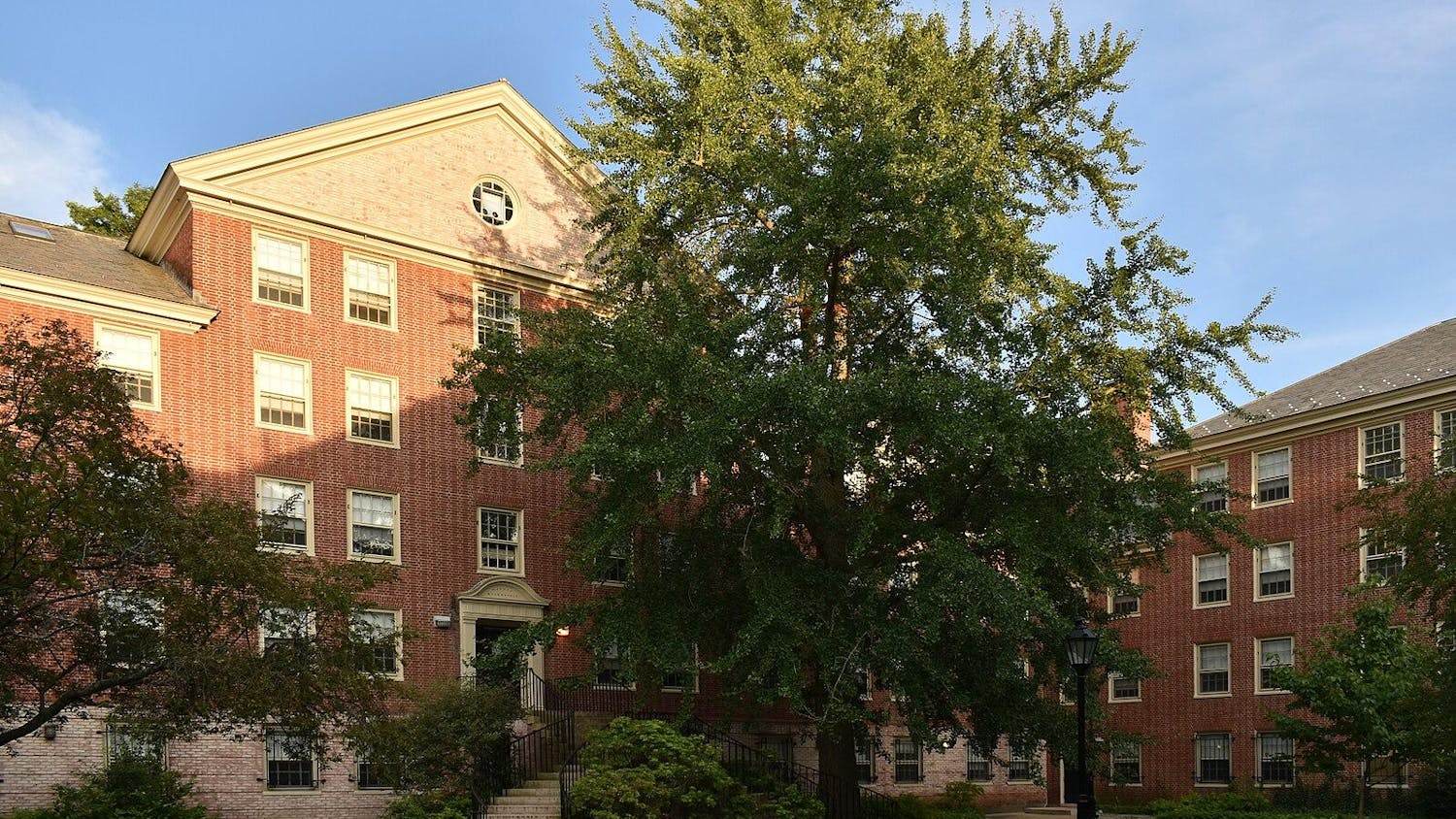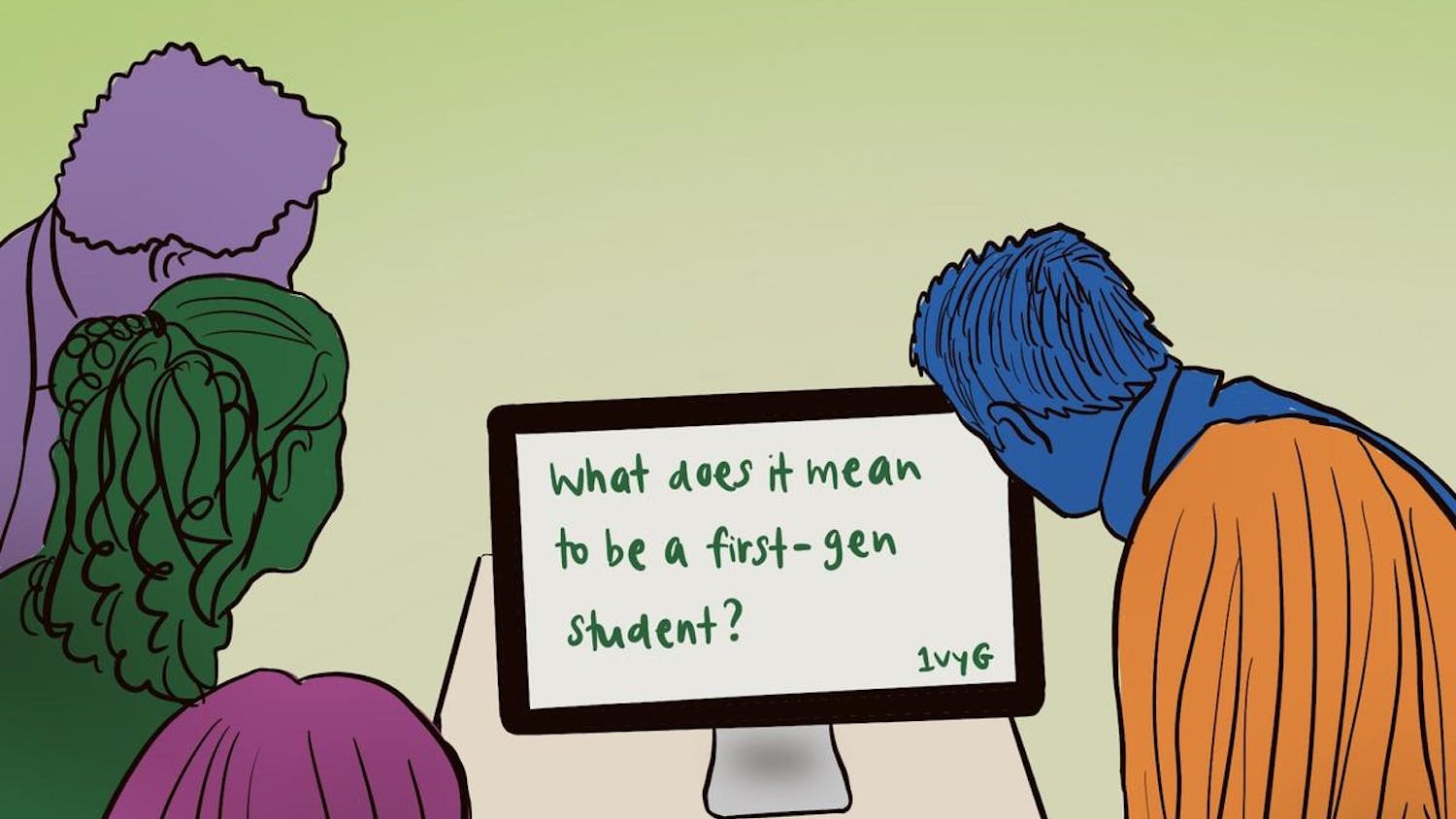Former Chilean President Ricardo Lagos hesitated to have his picture taken in his small, bright office in the Watson Institute for International Studies. Wearing slacks and a white button-down, but without a coat and tie, he worried he might not look presidential enough.
With his deep, close-lipped smile and a deliberate cadence in his voice, he did appear in many ways more professorial than presidential. But Professor-at-Large Lagos and the Lagos who helped lead Chile from despotism to democracy were both available for questions Thursday.
During an hour-long interview, Lagos gave a personal account of his role in restoring democracy to Chile. He expressed reservations about the Chilean government's ability to meet the demands of the nation's ongoing student protest movement and discussed what he sees as a resurgence in individual empowerment in political systems worldwide.
‘Lagos' finger'
With the quiet enthusiasm of a teacher, Lagos recounted his role in ousting U.S.-backed dictator Augusto Pinochet and reinstating democracy in his country in the late 1980s.
After eight years of despotism, a plebiscite was held to determine whether Pinochet would remain in office. If a majority supported Pinochet, he would stay on as dictator. If the majority voted against him, a presidential election would be held, and Pinochet would be out.
As the plebiscite approached, those who did not support Pinochet had to register their parties — no easy task under a dictatorship, Lagos said. Lagos' socialist faction was forbidden to register as a party. To circumvent the ban, it took the name "Party for Democracy."
But neither the Party for Democracy nor any of the other democratically minded parties were large enough to challenge Pinochet's supporters on their own, so they formed a coalition.
Before the plebiscite, Lagos made a historic appearance on the Chilean political television show "De Cara al Pais," which culminated in the episode known to history as "Lagos' finger."
"We are going to be on TV," Lagos recalled telling his colleagues ahead of his party's official registration. Lagos' colleagues were skeptical about the prospect of opposition politicians being given direct access to Chileans' eyes and ears, Lagos remembered, but he told them they would have to appear on television to represent their party in political debates.
And he was right.
At one point during his appearance on "De Cara al Pais," he turned to the camera and, pointing straight into the lens, reviled the dictator.
"General Pinochet has not been honest with the country," he said. "I will remind you, General Pinochet, that on the day of the 1980 plebiscite you said that President Pinochet would not be a candidate in 1989. And now, you promise the country another eight years of tortures, murders and human rights violations. It seems to me inadmissible that a Chilean can have so much hunger for power."
The democratic coalition went on to defeat Pinochet in the plebiscite. But three days after the 1988 plebiscite precluded Pinochet from remaining in power, Lagos announced to the Chilean people he would not run for president.
"Lagos' finger" had angered the country's military leadership, and Lagos said he did not want to jeopardize the democratic transition by placing himself — a potential target for the military — in office. The coalition Lagos helped form agreed on a Christian Democrat, Patricio Aylwin, as their candidate. Aylwin was elected in March 1990.
When he did take office as president 10 years later, he established an independent presidential commission to investigate political persecution under Pinochet's regime, and 35,000 Chileans made statements to the commission.
"Two volumes were published from that commission," Lagos said. "The first volume is like going to the hell of Dante Alighieri."
Prosperity and protests
Since the end of Pinochet's regime, Chile's GDP has grown about 5 percent annually. Per capita income has increased from $5,000 to $15,000. The proportion of Chileans living in poverty has shrunk from nearly 40 percent to about 11 percent. The number of students in the Chilean university system has rocketed from a quarter of a million to 1.1 million. Seven out of 10 students are the first in their families to pursue higher education.
But Chile's economic growth has triggered the emergence of a new, "class-oriented" social system, Lagos said. And in this atmosphere of growth, tuition for higher education has grown as well — by more than 80 percent in the last 20 years. Lagos attributed the current wave of student protests in the country to these factors.
The protests began in May, and college students occupied about 100 schools by June. In August, the movement mounted two marches with protesters numbering in the hundreds of thousands. And the protests flared up again late last month.
The Chilean government offers free primary education and scholarships for some university students. But given the country's comfortable economic climate, Lagos said he does not think the government should pay for higher education. The government's growing income should go toward primary education, housing for the poor and better infrastructure before secondary education, he said. But the students are "worth listening to," he said. "They have their reasons."
Back to Athens
Lagos said the protests in his country, as well as those that flared up recently in Spain, Israel and India, are driven by a desire to see increasing economic prosperity translated into tangible benefits for wide segments of society.
"People feel much more empowered today," Lagos said. And with this empowerment of the individual, politics is changing. "Now everybody is able to see what is going on everywhere," Lagos said, and they can compare their standard of living with those of people across the world.
It used to be that newspapers collected the words and views of people of authority and issued them to the populace, Lagos explained. Then radio and television allowed leaders to talk directly to citizens — but still, the citizens seldom had the opportunity to talk back.
"Suddenly, because of the web, politics is not that anymore. I present my brilliant idea, and in less than one second, you send me back a Twitter, and you say, ‘Who are you, Mr. Lagos? Going to give some message to me? I know what to do. Go to hell,'" Lag
os said.
Lagos foresees a return to a political dialogue more reminiscent of the public square, where everyone has the opportunity to talk as well as listen. "Look, we are going back to Athens," he said.
"This is going to be Democracy 2.0," Lagos said. "Now, everybody emit, and everybody receive."




